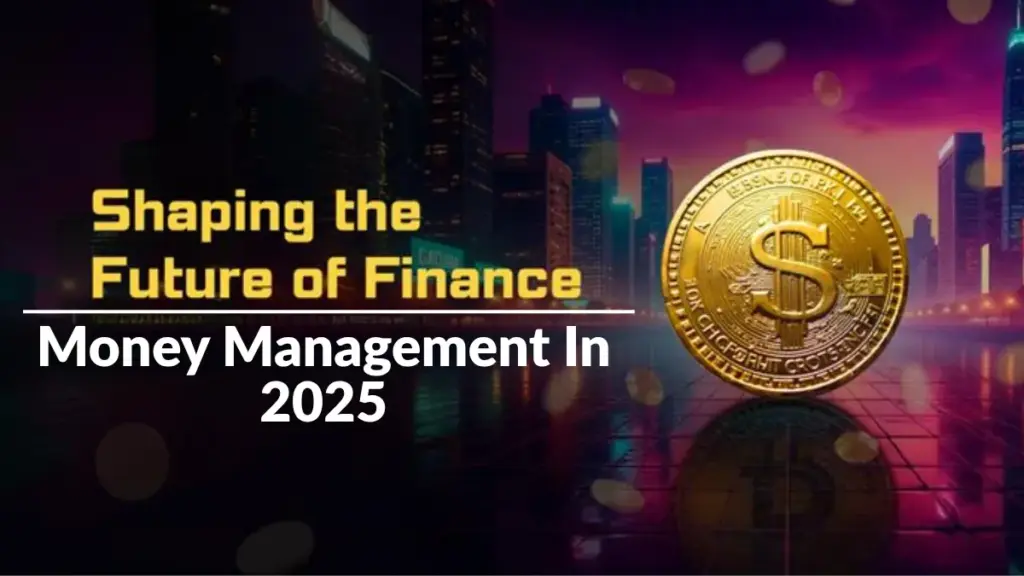Future of Finance is no longer just about bank accounts, credit cards, and occasional stock investments. The financial landscape in 2025 has transformed into a dynamic, tech-driven ecosystem where artificial intelligence, blockchain, digital payments, and data analytics redefine how individuals and businesses manage money. As we navigate this new era, understanding these emerging trends is essential for staying ahead—whether you’re an investor, entrepreneur, or everyday consumer.
1. The Rise of AI-Driven Financial Planning

Artificial Intelligence (AI) is becoming a cornerstone in personal finance.
- AI-powered tools analyze spending habits, predict future expenses, and optimize savings plans automatically.
- Robo-advisors now offer personalized investment portfolios with real-time adjustments based on market conditions.
- AI chatbots provide 24/7 financial assistance, answering queries and guiding users toward smarter decisions.
2. Blockchain Beyond Cryptocurrency
Blockchain has matured beyond Bitcoin and Ethereum.
- Decentralized Finance (DeFi): Offers peer-to-peer lending, borrowing, and yield farming without traditional banks.
- Smart Contracts: Enable secure, automated transactions without intermediaries.
- Tokenized Assets: Real estate, art, and commodities can be bought and sold as fractional digital tokens, making high-value investments more accessible.
3. Digital Payments Becoming the Norm
Cash is steadily disappearing.
- Contactless payments via mobile wallets like Google Pay and Apple Pay are now standard.
- QR-code payments have become universal in retail, transportation, and even street vendors.
- Cross-border transactions are faster and cheaper with fintech platforms eliminating traditional bank delays.
4. Embedded Finance in Everyday Life
Financial services are now integrated into non-financial platforms.
- E-commerce sites offer instant credit at checkout.
- Ride-hailing apps allow drivers to receive instant payments.
- Social media platforms provide in-app tipping and commerce features.
5. ESG and Sustainable Investing
Environmental, Social, and Governance (ESG) factors are now a key part of investment decisions.
- Investors are prioritizing companies that focus on sustainability, ethical practices, and social impact.
- ESG ETFs and green bonds are rapidly growing, giving individuals the ability to invest with purpose.
6. Hyper-Personalized Banking
Banks are shifting from one-size-fits-all services to highly tailored experiences.
- AI tailors loan offers, interest rates, and investment advice to an individual’s profile.
- Digital banking apps provide real-time budgeting updates and predictive spending alerts.
7. The Globalization of Finance
Borderless banking is becoming a reality.
- Multi-currency digital wallets let users store and transact in different currencies instantly.
- International investments are now accessible to small investors through global trading apps.
8. Financial Education Through Gamification

Money management is becoming more engaging.
- Apps are using games, challenges, and rewards to teach financial literacy.
- Young adults are learning investing basics through interactive simulations rather than traditional textbooks.
9. Cybersecurity as a Financial Priority
As finance moves online, cyber threats increase.
- Multi-factor authentication, biometric logins, and blockchain security are essential safeguards.
- Consumers are becoming more aware of phishing, identity theft, and fraud prevention.
10. Preparing for the Next Financial Revolution
The future will bring even more innovation—quantum computing for fraud detection, AI-powered predictive investment models, and central bank digital currencies (CBDCs) replacing traditional cash.
FAQs on The Future of Finance
Q1: How will AI change personal finance in 2025?
A: AI will automate budgeting, improve investment strategies, and provide instant financial advice based on real-time data.
Q2: Is cryptocurrency still a good investment?
A: It can be, but volatility remains high. Diversifying with other assets is essential.
Q3: What is the biggest risk in future finance?
A: Cybersecurity threats, especially as financial systems become fully digital.
Q4: How can I prepare for these changes?
A: Stay informed, adopt digital tools, diversify investments, and strengthen online security practices.
Q5: Will traditional banks disappear?
A: Not entirely, but they will evolve into hybrid digital-first service providers.
Also Read: Financial Freedom Blueprint: From Budgeting To Investing
Conclusion
The future of finance in 2025 is shaped by technology, sustainability, and accessibility. From AI-driven planning to blockchain-based investments, money management is becoming faster, smarter, and more inclusive. Those who embrace these trends early will have the advantage—not just in wealth building, but in financial security and freedom.



